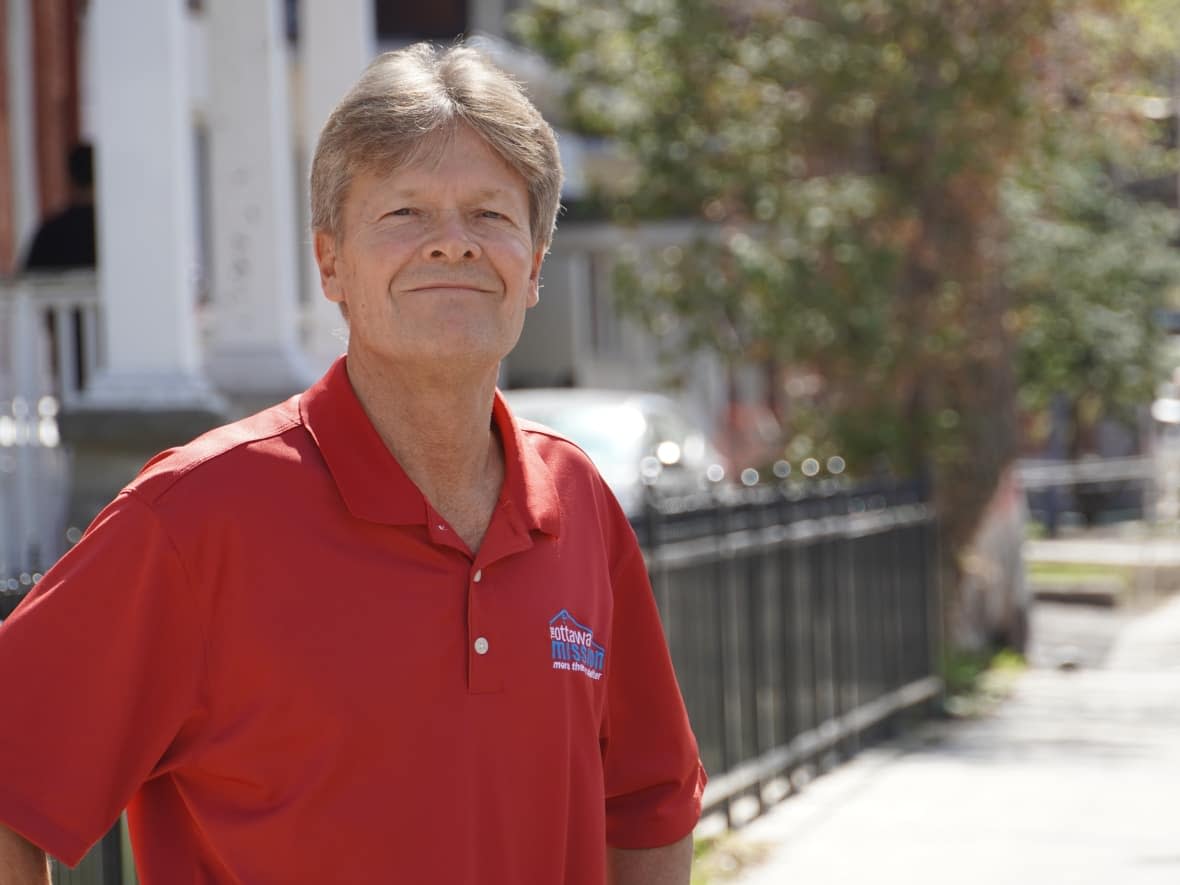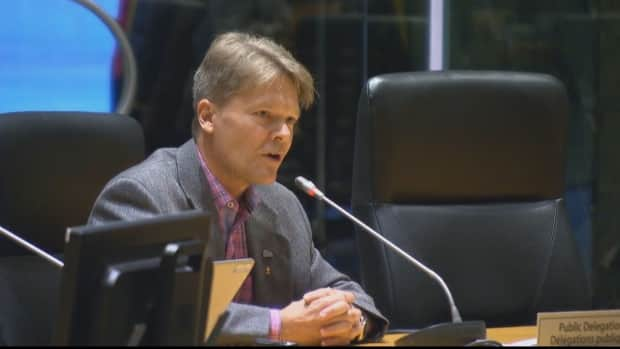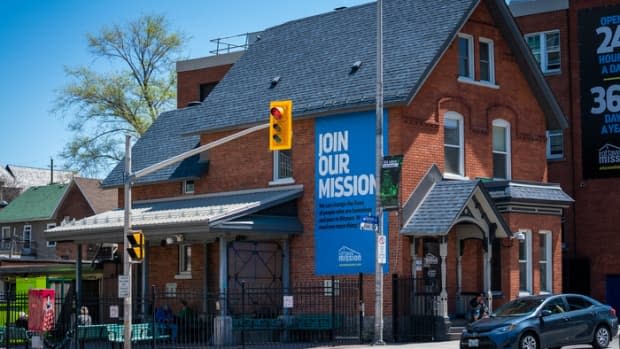How Peter Tilley's own addiction shaped his work with Ottawa's most vulnerable

When Peter Tilley walked into his first Alcoholics Anonymous meeting more than a decade ago, he knew he would either quit drinking or it would kill him.
As a single father to a 12-year-old daughter, he chose sobriety.
Now the CEO of the Ottawa Mission, Tilley still remembers the precise Alta Vista Drive address where that meeting took place. And he remembers how he felt: as if he were signing up for a life of mourning.
At the time, Tilley couldn't fathom a life without drinking. But when he entered the room, he found a group of about a dozen people, most in their 70s and 80s, laughing and enjoying each other's company.
"They were full of life and humour," he told Radio-Canada on Friday. "And I thought — hope. You need hope."
'Enough is enough'
Tilley celebrated 15 years of sobriety on April 25.
He said his experience with alcoholism — and his work overcoming the childhood traumas that fuelled it — has helped him in his role with the Ottawa Mission, and was a key reason he took the job in the first place.
Since becoming CEO in June 2013, Tilley said he's heard countless stories of trauma from people the shelter serves.
"It's the trauma of childhood that often leads to people numbing," he said. "And I was one of those people."

When Tilley was 13, his older brother was severely paralyzed in a car accident.
With that memory fresh in his mind, Tilley grew up watching his parents host parties and drink to excess. Alcoholism, he said, runs in his mom's side of the family.
"I couldn't wait to start drinking," he said.
In high school, Tilley turned to drugs, both using and dealing them. By 14, he was already "numbing" his feelings with cannabis and alcohol.
While he never used injection drugs, Tilley said he tried every other substance "under the sun." By his mid-20s, he had kicked the drug habit — but the drinking stuck.
"I thought as long as I'm functional and show up for work, how can I be an alcoholic?" he said. "As I learned the hard way, an addict is an addict is an addict."

He described his daily routine as a continuous stream of numbing himself with alcohol, followed by "full-throttle" binge drinking in the evening.
"And finally, one of those days, I melted down," he said. "I woke up the next day and said, 'enough is enough.' I was crying and begging for a way out."
The way out
That's when he turned to Alcoholics Anonymous. Shortly after his first meeting, he started at The Royal's Meadow Creek Addictions Program.
"The first three months were hard — were hell," he said.
"I fought through the cravings, the withdrawal of the first few months. And gradually, as I hit a year-and-a-half, two years, three years, I went from 'I can't drink again,' to 'I won't drink again,' to 'I don't need to drink again,' to 'I don't want to drink again.'"
As he came to terms with his alcoholism, he began addressing other areas of his life: first, his physical fitness by eating better and exercising, then his spiritual health.
"[It was] my own forgiveness from my childhood years, and my own acceptance of where I was in life," he said.
In his work life, "one thing led to another," and he left a position as executive director of the Ottawa Food Bank to take over at the mission.

'Never give up on hope'
Tilley said he sees a link between his past and his work with the mission.
One of his first changes as CEO was to invest in a new centre for the mission's addictions and trauma services program, one that was separate from the main shelter near Daly Avenue.
The program, Tilley said, addresses the trauma that leads to substance abuse in the first place.
"It's more than putting a cork in the bottle or pulling a needle out of an arm," he said.
When working with people who are struggling with addiction, Tilley said his advice is to "never give up on hope."
He gave an example from everyday life, about running into a former member of the Ottawa Mission's addiction program at the grocery store.
The man had overdosed on fentanyl during his time at the mission, Tilley said, and staff brought him back from near death.
"And here he is, a man in a grocery store, buying groceries, living in an apartment," Tilley said. "And it's a gift."


